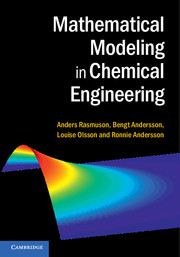Book contents
- Frontmatter
- Contents
- Preface
- 1 Introduction
- 2 Classification
- 3 Model formulation
- 4 Empirical model building
- 5 Strategies for simplifying mathematical models
- 6 Numerical methods
- 7 Statistical analysis of mathematical models
- Appendix A Microscopic transport equations
- Appendix B Dimensionless variables
- Appendix C Student’s t-distribution
- Bibliography
- Index
4 - Empirical model building
Published online by Cambridge University Press: 05 June 2014
- Frontmatter
- Contents
- Preface
- 1 Introduction
- 2 Classification
- 3 Model formulation
- 4 Empirical model building
- 5 Strategies for simplifying mathematical models
- 6 Numerical methods
- 7 Statistical analysis of mathematical models
- Appendix A Microscopic transport equations
- Appendix B Dimensionless variables
- Appendix C Student’s t-distribution
- Bibliography
- Index
Summary
Many phenomena in engineering are very complex and we do not have sufficient knowledge at the moment to develop a model from first principles; instead, we have to rely on empirical correlations. Today most process development is done using empirical or semi-empirical models. These models are usually accurate and very useful. The drawback is that they are only valid for specific equipment within an experimental domain where the parameters are determined.
In developing a correlation, we need first to identify all the variables that may have an influence on it. There are different approaches to finding important variables. One approach is to formulate the governing equations even if we do not have sufficient knowledge or computer resources to solve the equations. These equations and the corresponding boundary conditions provide information about which variables are important in formulating an empirical correlation. A second approach, used by experienced engineers, is to list all variables that are believed to be important. The final correlation is then obtained by experimenting and model fitting using experimental design to obtain reliable results and to minimize correlations between the parameters in the model.
- Type
- Chapter
- Information
- Mathematical Modeling in Chemical Engineering , pp. 40 - 52Publisher: Cambridge University PressPrint publication year: 2014



